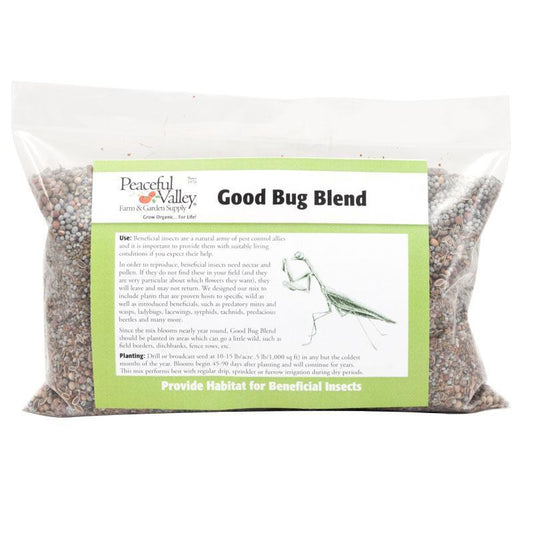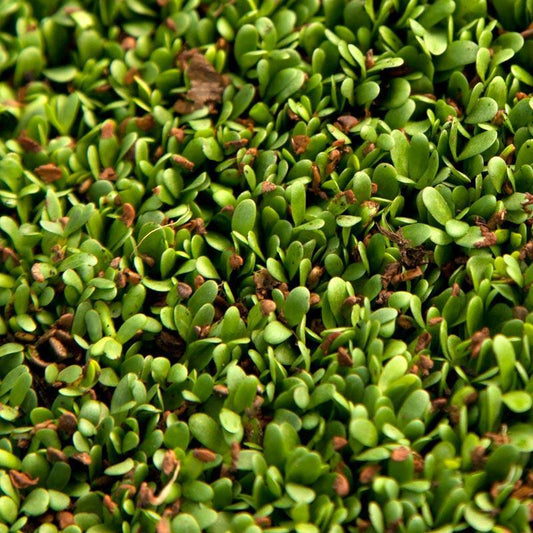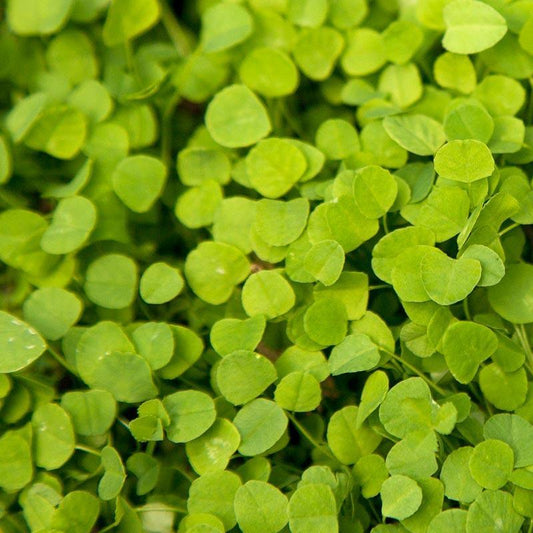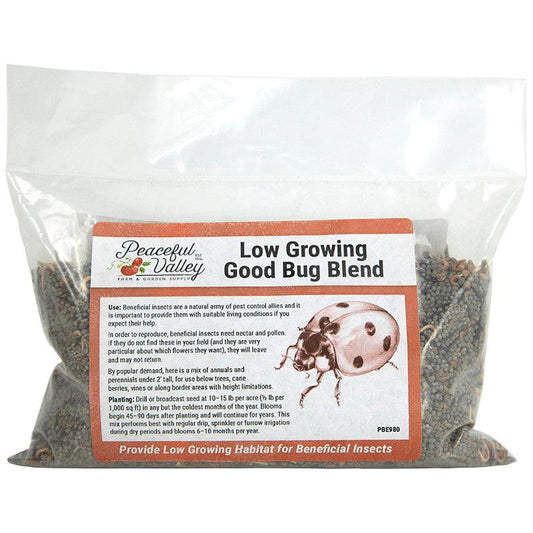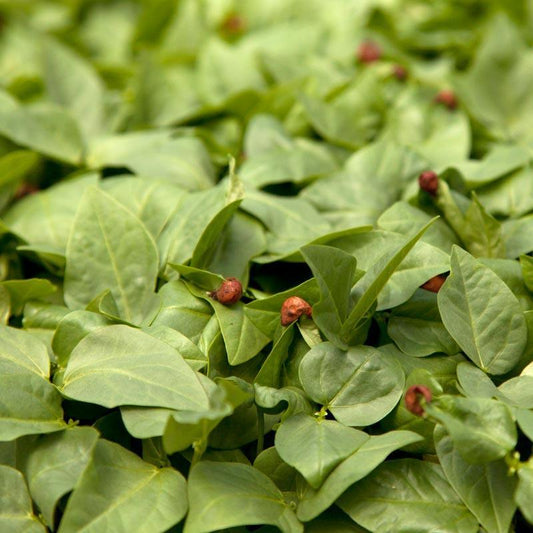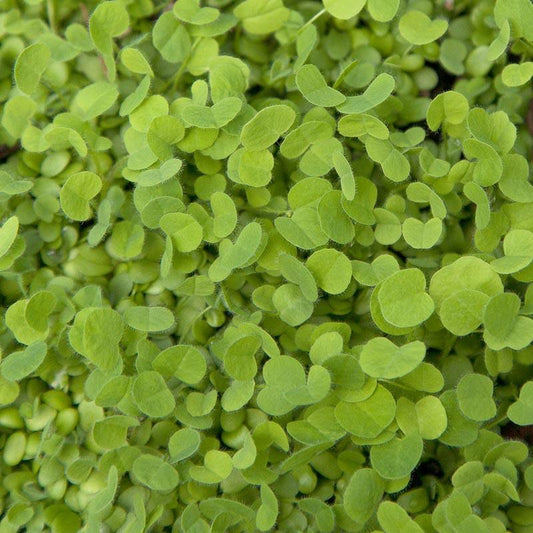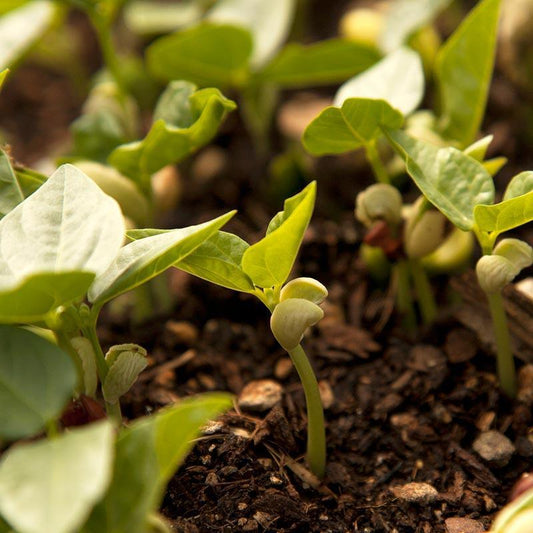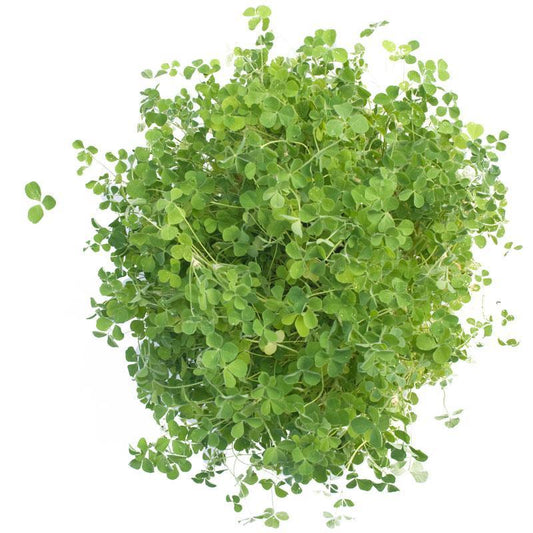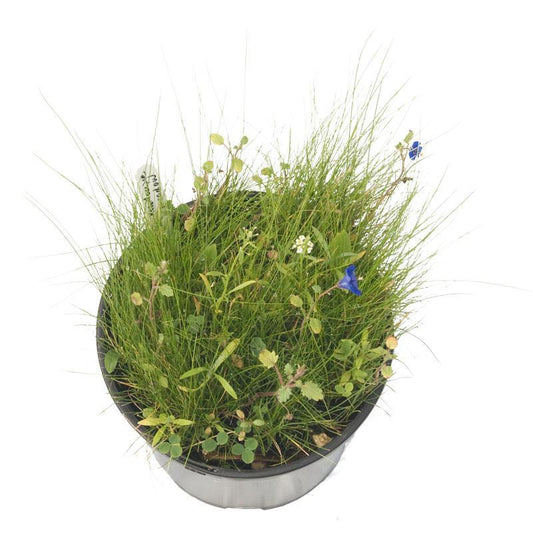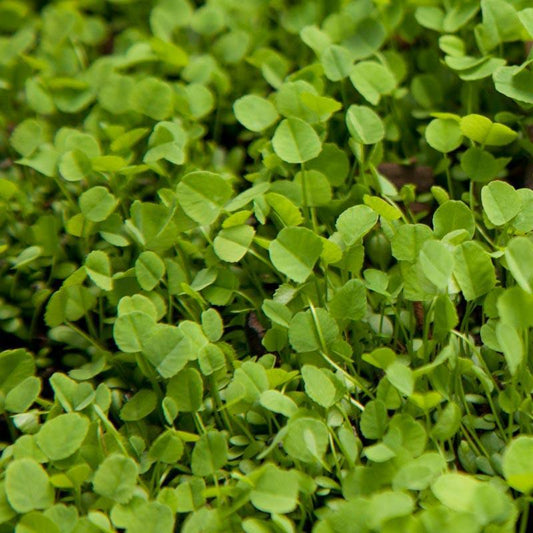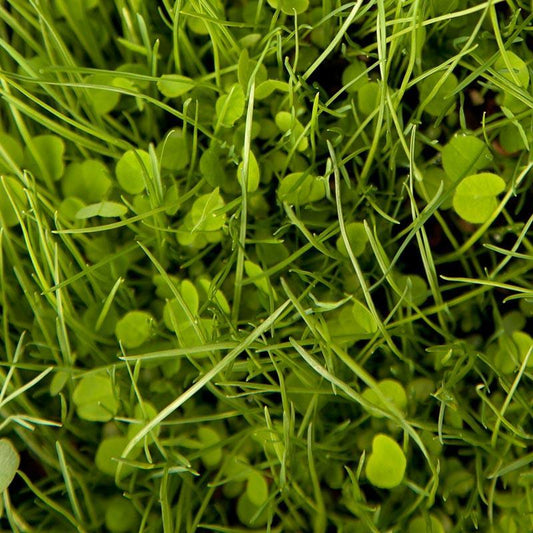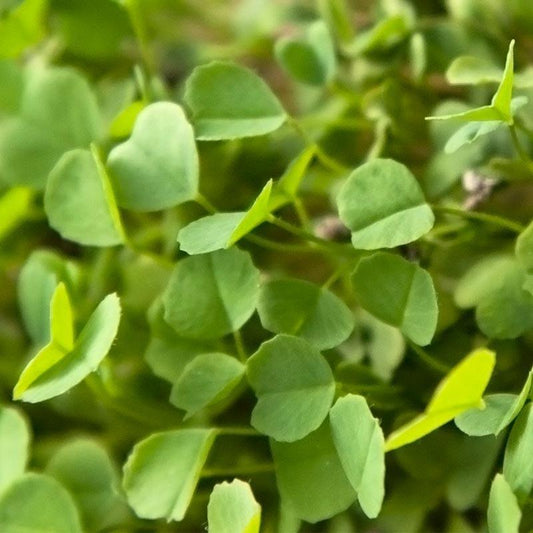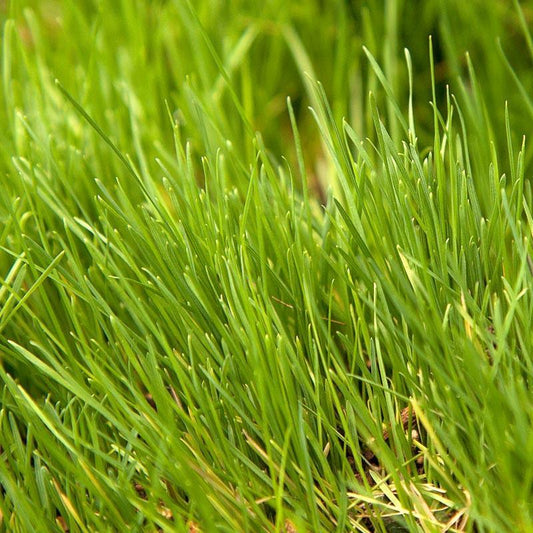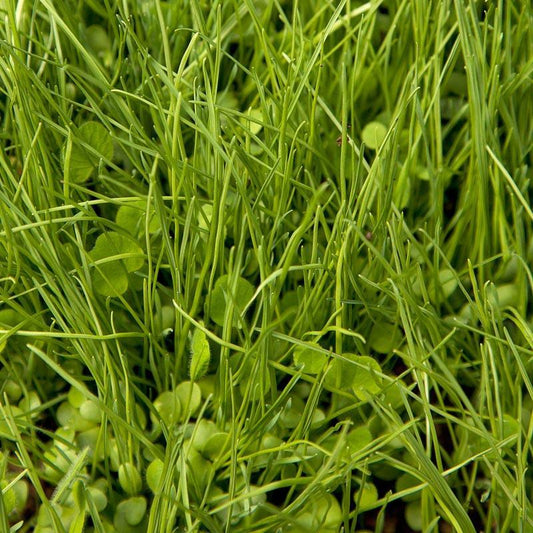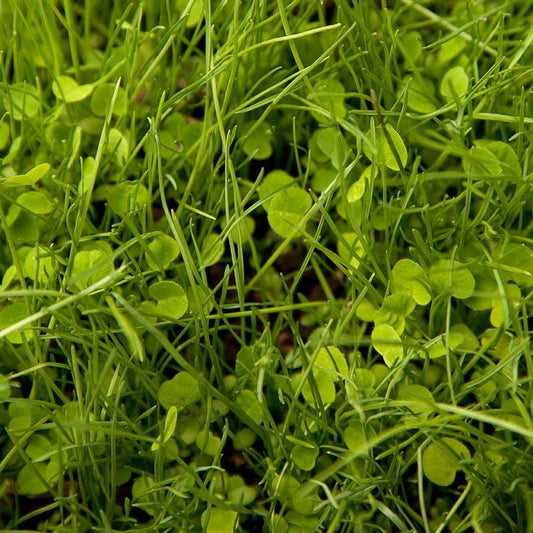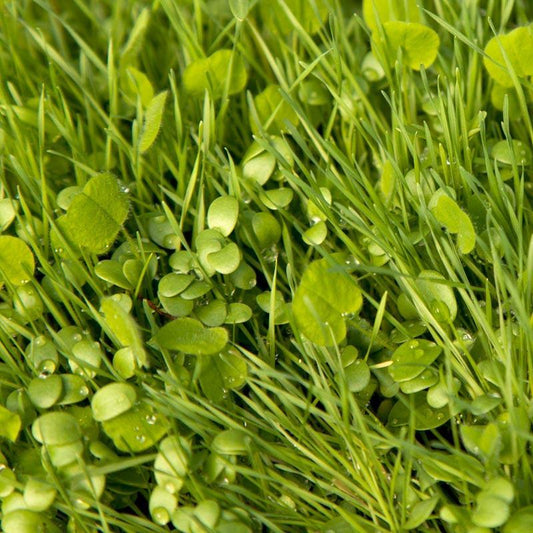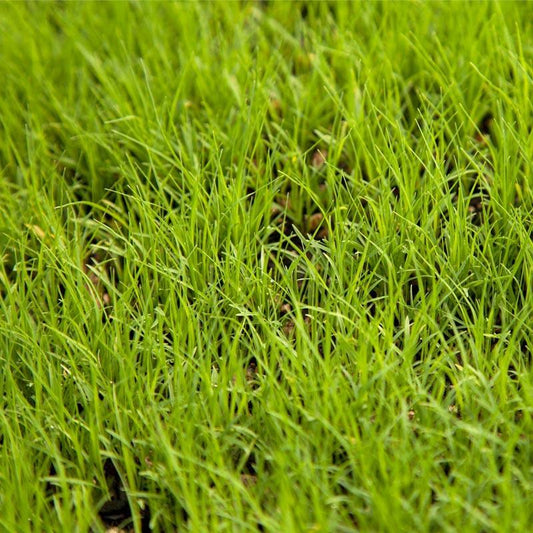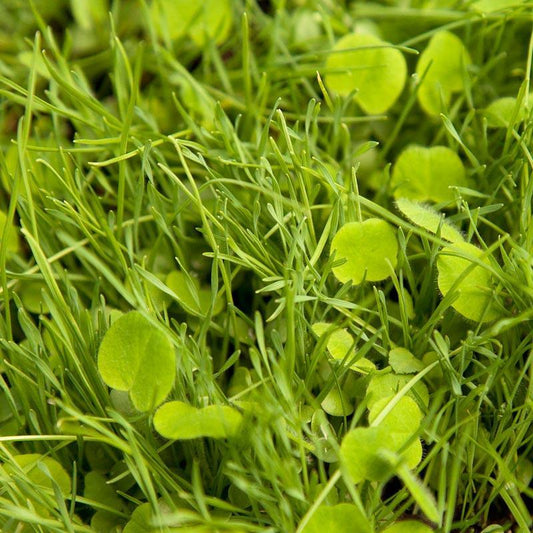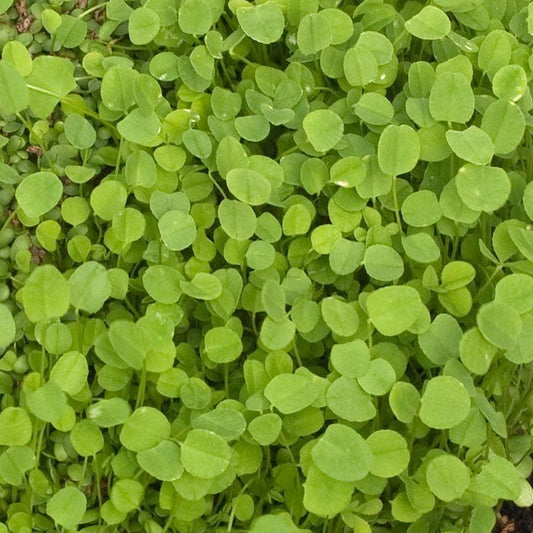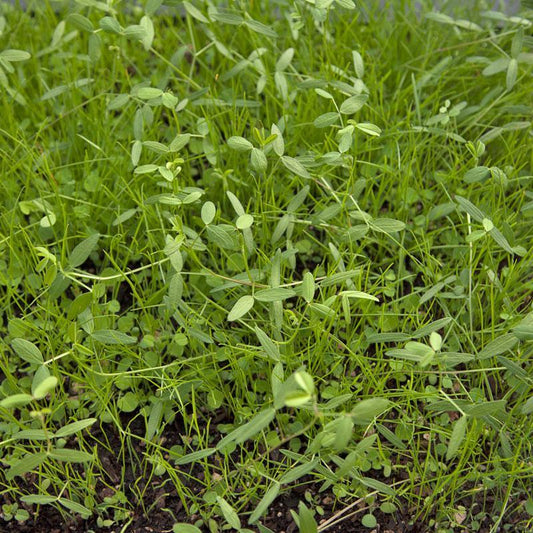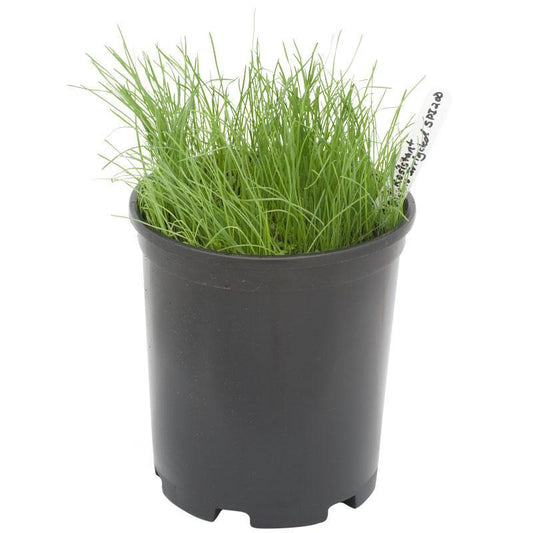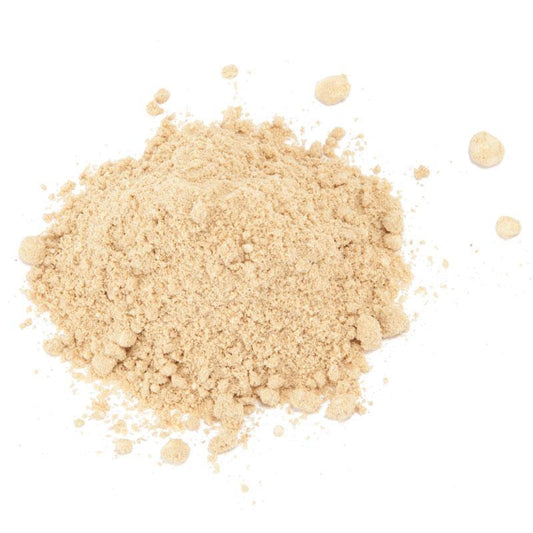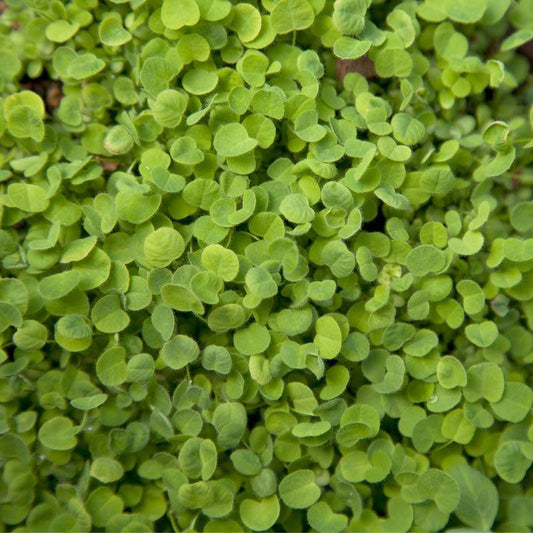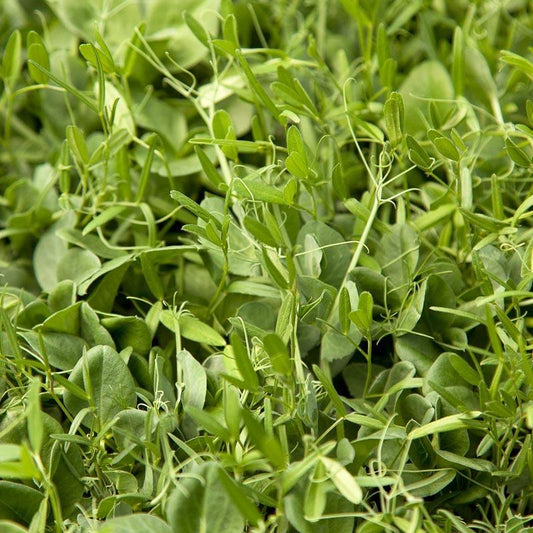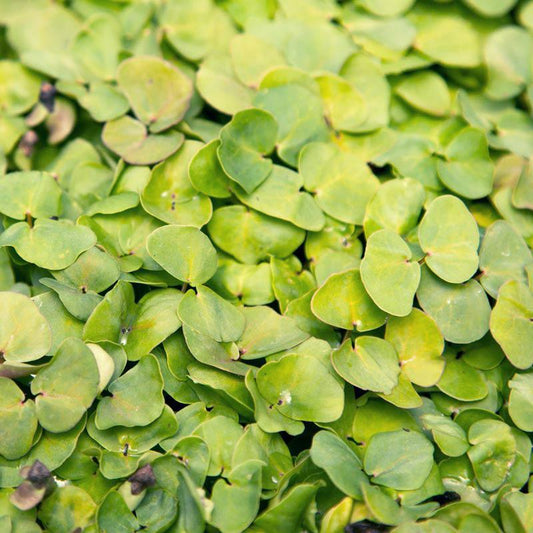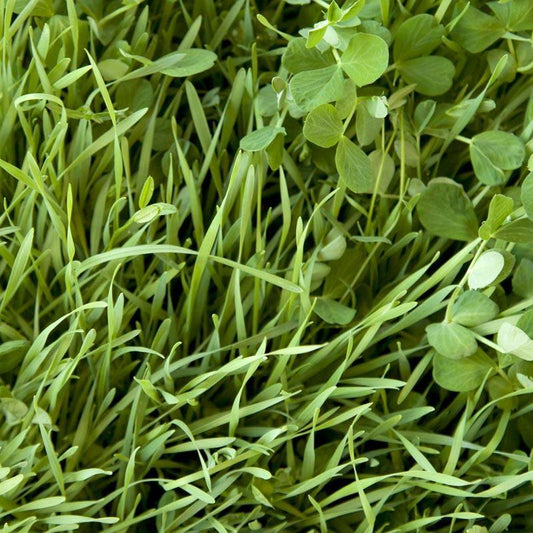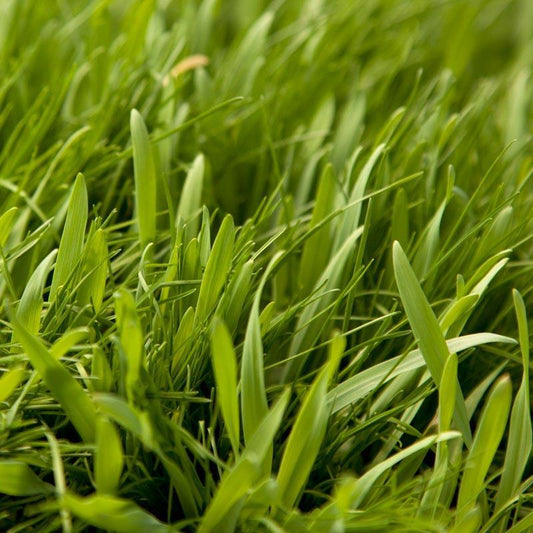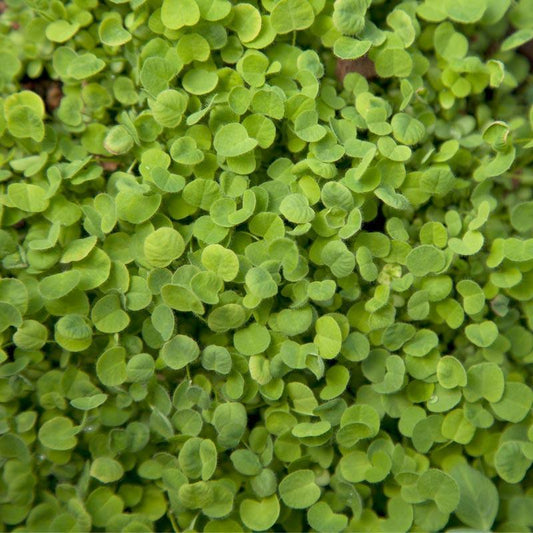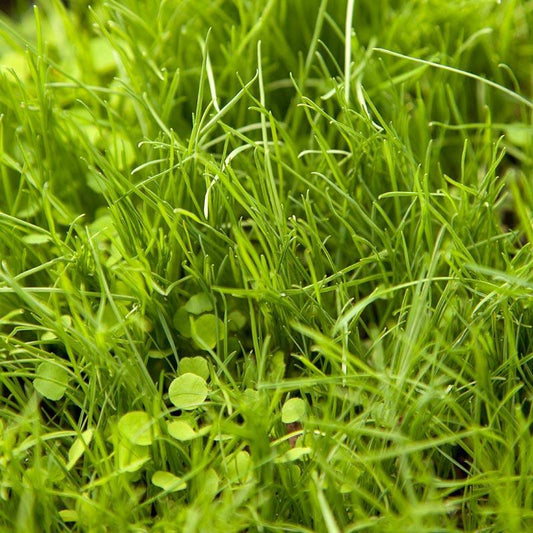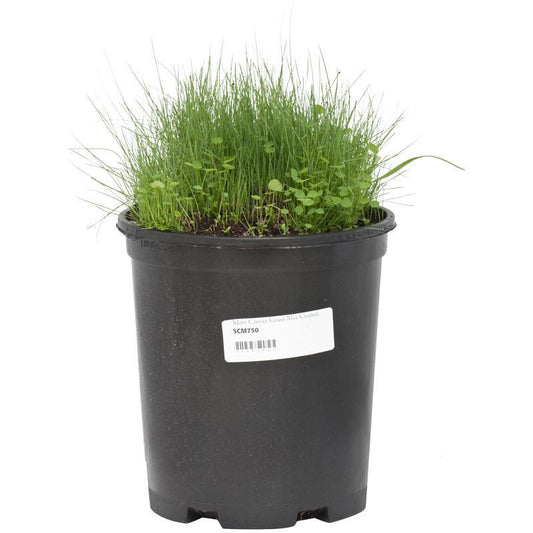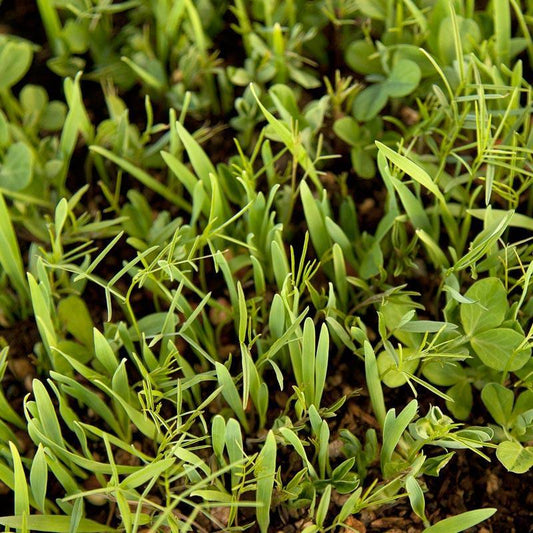Grass Seed
-

Lawn Seed Mixes
We carry lawn seed for different needs from sun and shade to...
-

Native Grass Seed
Native grasses play a vital role in maintaining various regions' ecological balance...
-

Meadow Mixes
Create your own meadow, with a mix of fescue, clovers and wildflowers....
-

Lawn Alternatives
Exploring Lawn Alternatives: A Comprehensive Guide Maintaining a lush green lawn has...
-

Water-Wise Grass Seed
Traditional lawns may not be the answer for everyone, especially in the...
Year Round Cover Crops Seeds
-

Alfalfa Seed
Premium Organic Alfalfa Seeds and Non-GMO Alfalfa Seed for Sale Our organic...
-

Perennial Clover Seed
Looking for a sustainable solution for your outdoor spaces? Our premium clover...
-

Grass Seed
Grass Seed for Every Lawn: Organic, Resilient, and Sustainable Creating a healthy...
-

Year Round Cover Crop Mixes
Exploring Cover Crop Mixes Cover crops are a valuable tool in sustainable...
Soil Building Mixes
-

Green Manure
Green manure cover crops are a term often used to describe crops...
-

Orchard & Vineyard Mixes
Plant field-proven annual mixes in orchards and vineyards for exceptional vigor, weed...
Specialty Cover Crop Seeds
-

Cereal Grain Seeds
Cereal grains have been a staple of human diets for millennia, offering...
-

Dryland Pasture Seed Mixes
Our mixes, when over-seeded or planted into newly worked ground, will greatly...
-

Erosion Control Seeds
Topsoil Protection Don’t allow your precious topsoil to wash away in winter...
-

Irrigated Pasture Seed Mixes
All of our mixes use premium quality varieties of grasses and legumes,...
Seed Inoculants
-

Inoculants
Introduction to Seed Inoculants Inoculants are valuable tools in farming and agriculture...
Seeders & Seed Spreaders
-
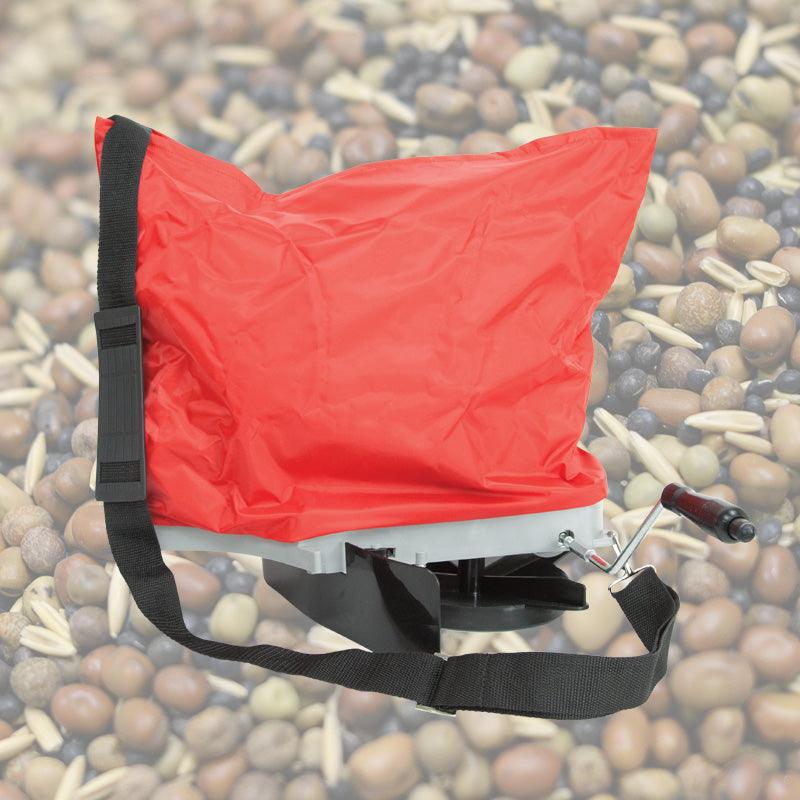
Seed Spreaders
Planting seeds with accuracy and efficiency is essential for successful gardening and...
Warm Weather Cover Crops Seeds
-

Summer Soil Building Seeds
Summer Soil Building Cover Crop Seeds Summer soil-building cover crop seeds are...
-

Summer Non-Legume Cover Crops
Cover crops are one of the cornerstones of sustainable agriculture. They are...
Fall Planted Cover Crops
-

Fall Planted Clover Seed
Most clovers are low growing, attract beneficials such as bees (if allowed...
-

Legume Seed
Legume seeds, available in various varieties, are a versatile and invaluable resource...
-

Non-Legume Cover Crop Seed
Specialty non-legumes are planted to take care of a particular problem in...
Top Sellers
-
Peaceful Valley Good Bug Blend - Nitrocoated (lb)
Regular price $11.49Regular priceUnit price per$11.49Sale $11.49 -
Ladak Alfalfa - Raw Seed (lb)
Regular price $12.49Regular priceUnit price per$12.49Sale $12.49 -
Sale
Pea Vetch Lentil Inoculant (Treats 100 lb)
Regular price $8.99Regular priceUnit price per$10.99Sale $8.99Sale -
Peaceful Valley Low-Growing Clover Mix - Nitrocoated Seed (lb)
Regular price $12.49Regular priceUnit price per$12.49Sale $12.49 -
Peaceful Valley Low-Growing Good Bug Blend - Nitrocoated (lb)
Regular price $12.99Regular priceUnit price per$12.99Sale $12.99 -
Sale
Cowpea, Peanut & Lespedeza Inoculant (Treats 100 lb)
Regular price $9.99Regular priceUnit price per$10.99Sale $9.99Sale -
Red Cowpeas - Raw Seed (lb)
Regular price $3.49Regular priceUnit price per$3.49Sale $3.49 -
Sale
Alfalfa-Clover Inoculant (Treats 50 lb)
Regular price $7.99Regular priceUnit price per$10.49Sale $7.99Sale -
Sale
Doublecut Red Clover - Nitrocoated Seed (lb)
Regular price $8.25Regular priceUnit price per$9.00Sale $8.25Sale -
Peaceful Valley Summer Edible Cover Crop Mix - Raw Seed (lb)
Regular price $4.99Regular priceUnit price per$4.99Sale $4.99 -
Peaceful Valley Dryland Clover Mix - Nitrocoated Seed (lb)
Regular price $8.99Regular priceUnit price per$8.99Sale $8.99 -
Sale
Peaceful Valley Kaleidoscope Meadow Mix - Seed (lb)
Regular price $9.99Regular priceUnit price per$10.99Sale $9.99Sale -
Ladino White Clover - Nitrocoated Seed (lb)
Regular price $11.99Regular priceUnit price per$11.99Sale $11.99 -
Sale
-
Sale
Peaceful Valley Sun & Shade Lawn Seed (5 lb Bag)
Regular price $31.99Regular priceUnit price per$32.00Sale $31.99Sale -
Sale
-
Sale
-
Biomaster Peas - Raw Seed (lb)
Regular price $2.99Regular priceUnit price per$2.99Sale $2.99 -
Peaceful Valley Herbal Irrigated Pasture Mix - Nitrocoated Seed (lb)
Regular price $10.99Regular priceUnit price per$10.99Sale $10.99 -
Black Eye Peas - Raw Seed (lb)
Regular price $3.49Regular priceUnit price per$3.49Sale $3.49 -
Sale
-
Semi-Dormant Alfalfa - Nitrocoated Seed (lb)
Regular price $9.49Regular priceUnit price per -
Timothy Grass Seed (Lb)
Regular price $8.49Regular priceUnit price per$8.49Sale $8.49 -
Fescue, Covar Sheep Seed (lb)
Regular price $9.99Regular priceUnit price per$9.99Sale $9.99 -
Peaceful Valley Quick Cover Erosion Mix - Nitrocoated Seed (lb)
Regular price $4.99Regular priceUnit price per$4.99Sale $4.99 -
Peaceful Valley Irrigated Dairy Pasture Mix - Nitrocoated Seed (lb)
Regular price $7.49Regular priceUnit price per$7.49Sale $7.49 -
Peaceful Valley Premium Erosion Mix - Nitrocoated Seed (lb)
Regular price $8.49Regular priceUnit price per$8.49Sale $8.49 -
Buffalo Grass Seed (lb)
Regular price $59.99Regular priceUnit price per$48.49Sale $59.99 -
Peaceful Valley Low-Growing Grasses & Wildflowers Seed (lb)
Regular price $33.49Regular priceUnit price per$33.49Sale $33.49 -
Peaceful Valley Basic Erosion Control Mix - Nitrocoated Seed (lb)
Regular price $6.99Regular priceUnit price per$6.99Sale $6.99 -
O'Conners Strawberry Clover - Nitrocoated Seed (lb)
Regular price $12.99Regular priceUnit price per$12.99Sale $12.99 -
Sale
Bean Inoculant (treats 1500 lbs)
Regular price $27.99Regular priceUnit price per$34.49Sale $27.99Sale -
Peaceful Valley Dryland Erosion Fire Recovery Mix Nitrocoated (lb)
Regular price $4.99Regular priceUnit price per$4.99Sale $4.99 -
Sale
Peaceful Valley Premium Lawn Seed Mix (5 lb)
Regular price $32.99Regular priceUnit price per$49.99Sale $32.99Sale -
Sale
Peaceful Valley Flowering Pollinator Mix (lb)
Regular price $49.99Regular priceUnit price per$62.99Sale $49.99Sale -
Peaceful Valley Bloat Resistant Irrigated Pasture Mix - Nitrocoated Seed (lb)
Regular price $7.99Regular priceUnit price per$7.99Sale $7.99 -
Peaceful Valley Good Bug Food
Regular price $60.99Regular priceUnit price per$34.99Sale $60.99 -
Organic Red Clover - Raw Seed (lb)
Regular price $11.49Regular priceUnit price per$11.49Sale $11.49 -
Peaceful Valley Nitro-Max Plow Down Mix Seed (lb)
Regular price $2.99Regular priceUnit price per$2.99Sale $2.99 -
Peaceful Valley Summer Soil Builder Mix - Raw Seed (lb)
Regular price $3.49Regular priceUnit price per$3.49Sale $3.49 -
Peaceful Valley Sod Buster Mix - Seed (lb)
Regular price $2.99Regular priceUnit price per$2.99Sale $2.99 -
Peaceful Valley General Purpose Erosion Mix - Nitrocoated Seed (lb)
Regular price $2.99Regular priceUnit price per$2.99Sale $2.99 -
Sale
Red Clover Nitrocoated (lb)
Regular price $11.75Regular priceUnit price per$13.00Sale $11.75Sale -
Peaceful Valley Premium Horse Irrigated Pasture Mix - Nitrocoated Seed (lb)
Regular price $6.99Regular priceUnit price per$6.49Sale $6.99 -
Peaceful Valley Mini Perennial Clover & Grass Mix - Nitrocoated Seed (lb)
Regular price $12.99Regular priceUnit price per$12.99Sale $12.99 -
Peaceful Valley Legume Oat Mix #1 - Raw Seed (lb)
Regular price $2.99Regular priceUnit price per$2.99Sale $2.99 -
Sale
Peaceful Valley California Native Pollinator Blend (lb)
Regular price $52.99Regular priceUnit price per$59.99Sale $52.99Sale -
Oregon Annual Ryegrass Seed (lb)
Regular price $2.99Regular priceUnit price per$2.99Sale $2.99


























